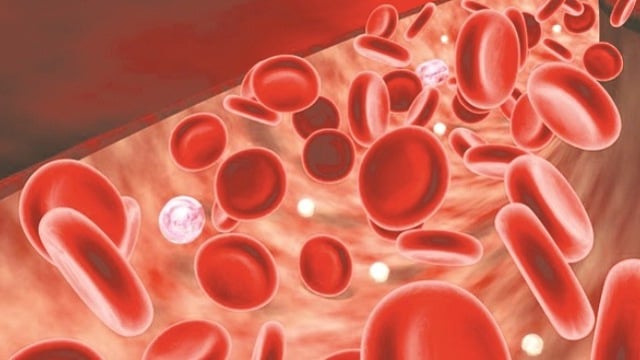Meat is a source of protein, which helps build and repair tissues in the body. It is also rich in important nutrients such as iron and zinc. However, eating meat every day can have both benefits and risks, depending on the type and amount of meat you eat.

Illustration photo: REUTERS
Benefits of eating meat every day
Meat is a rich source of protein. Meat contains essential amino acids, compounds the body can only get from food.
Amino acids are the building blocks of protein, essential for muscle repair, tissue growth and maintaining body health. Meat protein also has a high biological value, meaning that the body can effectively absorb and use most of the protein in meat to meet its needs.
Meat also provides important vitamins and minerals. It is a major source of iron, a mineral needed to make hemoglobin, the protein in red blood cells that carries oxygen from the lungs to the rest of the body.
Iron is important for muscle health, bone marrow, and organ function. The body also needs iron to produce certain hormones.
Meat is also a rich source of zinc, an essential mineral that supports the immune system, aids in cell growth, and plays a role in carbohydrate metabolism. Zinc is also important for taste and smell.
Meat is high in B vitamins, which are essential for the body's conversion of food into energy. They also help form red blood cells.
The risks of eating meat every day
Do not eat too much of any food or food group, including meat. The diet should be balanced, varied and should not lack essential food groups such as fruits and vegetables.
It is advisable to include a variety of protein sources, such as fish and plant protein.
Some studies have shown that eating too much red meat or processed meat increases the risk of cancer, especially colon cancer. Eating less than 50 grams of red meat per day can reduce the risk of cancers such as prostate, breast or colorectal cancer.
Red meat also contains more environmental pollutants than white meat (poultry). Many pollutants accumulate in animal fat, so choosing lean meats and diversifying your protein sources is a good idea to avoid red meat at every meal.
Consuming large amounts of meat can also have a greater impact on the environment. Research shows that meat-heavy diets, such as those based on animal products, have the highest carbon footprint.
In contrast, plant-based diets, such as vegetarian and vegan diets, have the lowest environmental impact.
How much meat should a person eat per day?
While there are no specific guidelines for how much meat you should eat, there are guidelines for how much protein you should consume. Recommendations vary from person to person based on factors such as age, height, weight, activity level, and health status.
Protein is important in preventing muscle loss as you age. For healthy adults, the recommended protein intake is 0.8 grams per kilogram of body weight, which is the minimum to avoid protein deficiency.
However, experts recommend consuming 1.2 grams per kilogram to reduce muscle loss due to aging. Protein should make up 10-35% of total daily calories, depending on each person's lifestyle and needs.
While getting enough protein is important, portion control is just as important. This leaves room for other foods, ensuring nutritional variety to support overall health.
The US Dietary Guidelines also recommend incorporating a variety of protein-rich foods, including plant proteins such as beans and soy products.
These plant protein sources provide phytochemicals (beneficial plant compounds) and fiber, nutrients not found in meat.
Source: https://tuoitre.vn/ban-nen-an-bao-nhieu-thit-moi-ngay-20250222072337204.htm


![[Photo] National Assembly Chairman Tran Thanh Man meets with Lao Prime Minister Sonexay Siphandone](https://vstatic.vietnam.vn/vietnam/resource/IMAGE/2025/4/16/e023753be97a4d8e9f5ab03eb5182579)
![[Photo] President Luong Cuong receives Korean Foreign Minister Cho Tae-yul](https://vstatic.vietnam.vn/vietnam/resource/IMAGE/2025/4/16/d68c85559fca4772a8e3ca8ab1942a6f)
![[Photo] Summary of training for 36 parade blocks for the April 30th Festival](https://vstatic.vietnam.vn/vietnam/resource/IMAGE/2025/4/16/69906ce4b0d1470eb18b8e9bdcdabff1)
![[Photo] General Secretary To Lam gave a speech at the National Conference to disseminate the Resolution of the 11th Central Conference, 13th tenure.](https://vstatic.vietnam.vn/vietnam/resource/IMAGE/2025/4/16/04e0587ea84b43588d2c96614d672a9c)
![[Photo] The 9th Vietnam-China Border Defense Friendship Exchange](https://vstatic.vietnam.vn/vietnam/resource/IMAGE/2025/4/16/10e73e2e0b344c0888ad6df3909b8cca)
![[Photo] Prime Minister Pham Minh Chinh receives South Korean Foreign Minister Cho Tae-yul](https://vstatic.vietnam.vn/vietnam/resource/IMAGE/2025/4/16/c8a7bf8f15f347d78b4ec317d8979aba)











![[Video] Continuously saving the lives of fetuses with twin-to-twin transfusion syndrome](https://vstatic.vietnam.vn/vietnam/resource/IMAGE/2025/4/16/b5970601f5984f499437b73e7007c998)



![[Video] Reorganizing medical facilities according to the 2-tier local government model](https://vstatic.vietnam.vn/vietnam/resource/IMAGE/2025/4/16/d4d9f1a2fef14905ace8f70d53acf7f9)



































































![[Photo] The capital of Binh Phuoc province enters the political season](https://vstatic.vietnam.vn/vietnam/resource/IMAGE/2025/4/16/c91c1540a5744f1a80970655929f4596)






Comment (0)